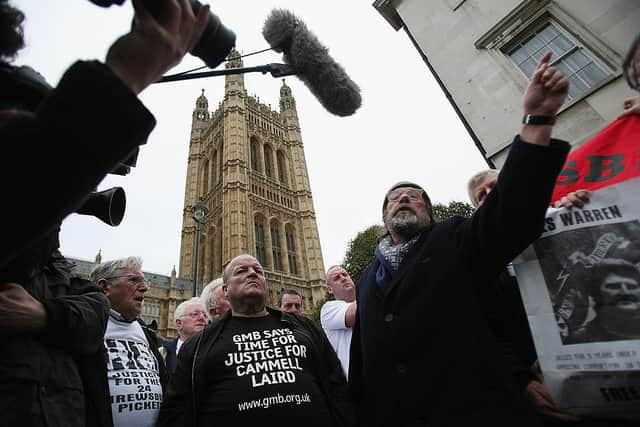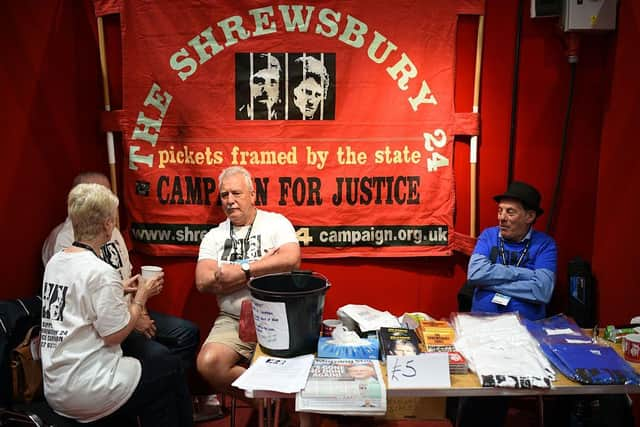The Shrewsbury 24: Court of Appeal overturns strike convictions after half a century
Two dozen trade unionists who picketed during the 1972 national builders’ strike were charged with offences including unlawful assembly, conspiracy to intimidate and affray for picketing, with 22 of them convicted.
Lawyers representing 14 of the Shrewsbury 24, including The Royle Family star Ricky Tomlinson, argued the destruction of original witness statements means their convictions are unsafe.
Advertisement
Hide AdAdvertisement
Hide AdThey also claimed the broadcast of a documentary, Red Under The Bed, during the first of three trials in 1973 and 1974 was “deeply prejudicial” as it would have “provoked panic in the mind” of the jury.
On Tuesday, the Court of Appeal allowed the appellants’ challenge to their convictions.
Announcing the decision at the Royal Courts of Justice in London, Lord Justice Fulford said: “These 14 appeals against conviction are allowed across the three trials and on every extant count which the 14 appellants faced.”
The judge added: “It would not be in the public interest to order a retrial.”
In its written ruling, the Court of Appeal allowed the 14 appellants’ appeals on the ground that original witness statements had been destroyed.


Lord Justice Fulford said: “If the destruction of the handwritten statements had been revealed to the appellants at the time of the trial, this issue could have been comprehensively investigated with the witnesses when they gave evidence, and the judge would have been able to give appropriate directions.
“We have no doubt that if that had happened, the trial process would have ensured fairness to the accused. Self-evidently, that is not what occurred.”
The judge added: “By the standards of today, what occurred was unfair to the extent that the verdicts cannot be upheld.”
Advertisement
Hide AdAdvertisement
Hide AdBut the Court of Appeal dismissed the appeals on a second ground, which was that the broadcast of Red Under The Bed during the first of the trials may have prejudiced the jury.


In a statement after the ruling, Mr Tomlinson, who was sentenced to two years in jail for conspiracy to intimidate and affray, said: “Whilst it is only right that these convictions are overturned, it is a sorry day for British justice.
“The reality is we should never have been standing in the dock.
“We were brought to trial at the apparent behest of the building industry bosses, the Conservative government and ably supported by the secret state.
“This was a political trial not just of me and the Shrewsbury pickets, but was a trial of the trade union movement.
“My thoughts today are with my friend and comrade Des Warren.
“I’m just sorry he is not here today so we can celebrate, but I’m sure he’s with us in spirit.”
Mr Warren, who was sentenced to three years alongside Mr Tomlinson, died in 2004.
Advertisement
Hide AdAdvertisement
Hide AdArthur Murray, who was convicted of affray and unlawful assembly and sentenced to six months, said: “Serious questions need to be asked about the role of the building industry bosses in our convictions and the highest offices of Government who all had a hand in our trial and conviction.
“Make no mistake, our convictions were a political witch-hunt.”
A message from the Editor:
Thank you for reading this article. We're more reliant on your support than ever as the shift in consumer habits brought about by coronavirus impacts our advertisers.
If you haven't already, please consider supporting our trusted, fact-checked journalism by taking out a digital subscription.
Comments
Want to join the conversation? Please or to comment on this article.